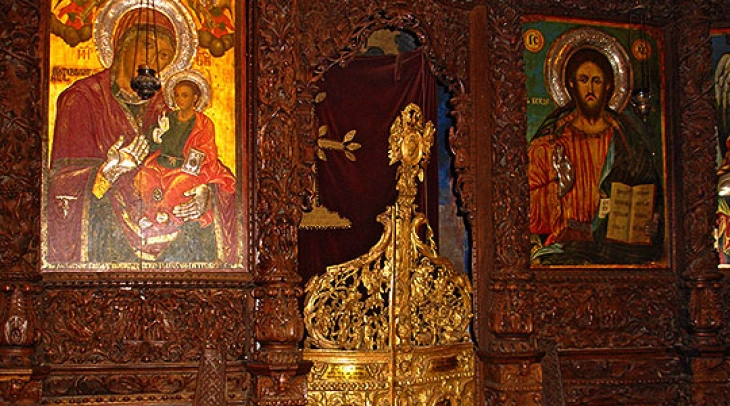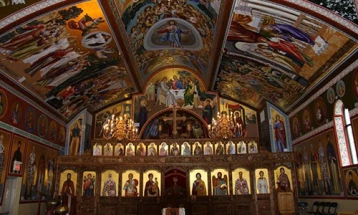
24 September 2022 (MIA)
Macedonian Orthodox Church Calendar
Our Holy Mother Theodora
From Alexandria, she was the wife of a young man. Urged on by a fortune-teller, she committed adultery with another man. Her conscience immediately began to trouble her, and she cut off her hair and dressed in men’s garb, then went off to the men’s monastery of Octodecatos under the man’s name of Theodore. Her labors, fasts, vigils, meekness and tearful repentance were a source of wonder to all the brethren. Slandered by some harlot, who said that Theodora had lain with her, she would not let the truth be known, regarding it as a punishment from God for her former sin.
Driven out of the monastery, she spent seven years wandering in the forests and deserts, caring for the harlot’s child. She overcame all the enemy’s assaults, refusing to worship Satan, to take food from the hand of a soldier or to heed her husband’s demand that she return to him – for all that was simply devilish illusion, and when Theodora made the sign of the Cross, it all vanished away like smoke.
After seven years, the abbot of the monastery received her back, and she lived there in asceticism a further two years and then entered into rest in the Lord. Only then did the monks learn that she was a woman; an angel appeared to the abbot and explained everything to him. Her husband came to her funeral, and remained till his death in the cell of his former wife. St. Theodora had very great grace from God: she tamed wild beasts, healed sicknesses and brought water to a dry well. Thus God glorified this true penitent, who, with heroic endurance, spent nine years repenting of one sin. She entered into rest in the year 490.
Catholic Calendar
Feast of Our Lady of Mercy also known as Our Lady of Ransom
Commemorates the foundation of the Mercedarian Order and the apparition of Our Lady of Ransom. In this appearance she carried two bags of coins for use in ransoming Christians imprisoned by Moors. On Aug, 10, 1218, the Mercedarian Order was legally constituted at Barcelona by King James of Aragon, and was approved by Pope Gregory IX on Jan. 17, 1235. The Mercedarians celebrated their institution on the Sunday nearest to Aug. 1 because it was on Aug. 1, 1218, that the Blessed Virgin showed Saint Peter Nolasco the white habit of the Order. The Congregation of Rites on April 4, 1615, approved this custom. On Feb. 22, 1696, it was extended to the entire Latin Church, and the date changed to Sept. 24.







